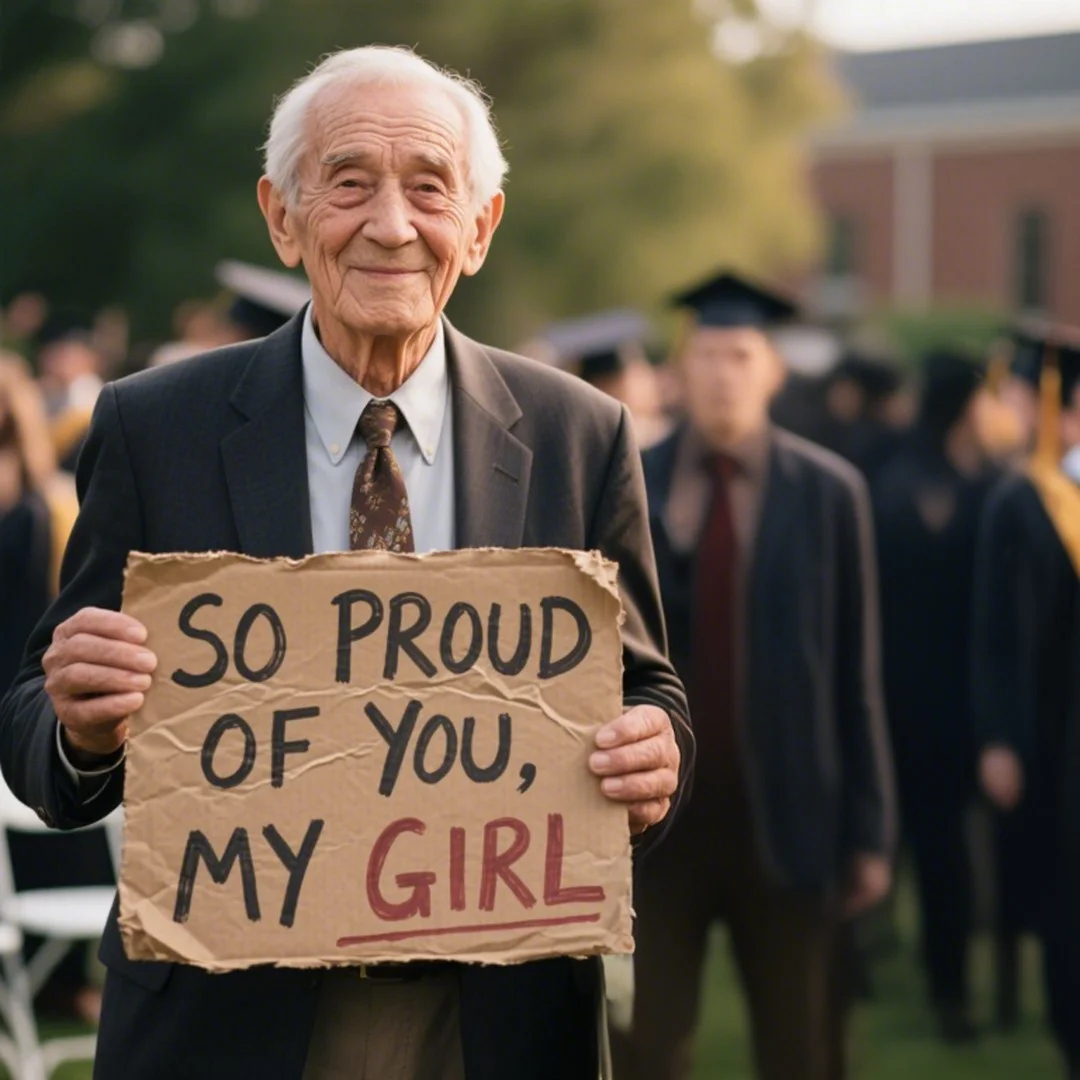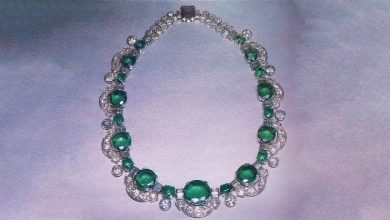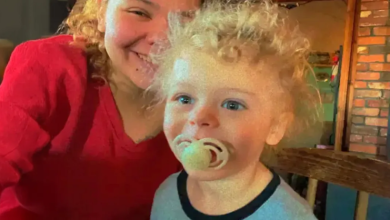I used to lie about my dad’s age. Not to him—he always knew how I felt—but to classmates, teachers, even friends.
“Yeah, he’s in his fifties,” I’d mumble, cutting a decade off like it didn’t matter.
The truth? He was 68 when I was born. Growing up, he felt more like a grandpa than a dad.

He’d show up to school events in loafers and plaid shirts, always a little off-center, always a little too quiet. Kids whispered. One even asked if he was my great-grandfather.
I laughed it off, but inside, I was mortified. We fought a lot when I was a teen.
I told him once, during a screaming match, that he was selfish for having a kid so late in life. That he wouldn’t even be around for the important stuff.
He just sat there—quiet, heavy. Like my words landed exactly where I threw them. And I thought I’d won.
Then came graduation day.
Everyone was shouting, laughing, taking selfies. And there he was—standing off to the side with a wrinkled hand-painted sign that said:
“SO PROUD OF YOU, MY GIRL.”

He looked so small in the crowd. I nearly pretended not to see him.
My friend pulled me into photos, and when I glanced over, I caught him wiping his eyes when he thought no one was watching.
When I finally walked over, he handed me a card.
“Open it later,” he said. “I know I wasn’t perfect.”
I should’ve hugged him. I didn’t.
That night, I opened the card. Inside was a photo of him in a hospital gown, standing next to a nurse. I barely recognized him—he looked thin. Fragile.
Beneath it, a note:
“There were days I was too tired to play, too slow to keep up. But I stayed because I wanted to see you walk across that stage. I stayed for you.”
I had no idea he’d been sick. He never said a word. And suddenly, every time I’d thrown the word “old” at him like an insult—it came crashing back like a punch to the chest.
The next morning, I found him in the kitchen, sipping tea with the volume too low on the news. Like always.
“I read your card,” I said.
He smiled faintly. “I figured.”
“Why didn’t you tell me?”
“Didn’t want to weigh you down. You had enough going on.”
That was the start of a quiet shift.

Over the next few weeks, I started noticing all the silent things he’d done.
The coupons he clipped for school trips. The way he filmed every dance recital, even when I begged him not to come. How he gave up things quietly, behind the scenes, so I could have more.
And then one day I came home and saw it—A folder on the kitchen table.
Medical bills. Bank statements. A letter from hospice.
When I confronted him, he finally admitted it.
“I’ve got heart failure. I’ve known for a while.”
“I just wanted to see you graduate. That was my finish line.”
That night I cried into his sweater until it was damp.
But here’s the twist:
He didn’t die that summer.
He’s still here.

Slower now. Needs help sometimes. But he’s made it past graduation. Past my first semester of college.
Even to my little art show—where he sat in the front row holding that same wrinkled sign, now held together with duct tape.
And you know what?
I stopped lying.
Now, when someone asks about my dad, I tell them the truth.
“Yeah, he’s 84. And he’s the strongest person I know.”
We still argue—usually about my short skirts or the sink I still haven’t unclogged—but now I see him.
Not just the age. Not just what he couldn’t do. But what he did.
Because here’s the thing:
Sometimes, we get stuck mourning the version of love we didn’t get… and miss the quiet, extraordinary love we did.
I didn’t get the dad who tossed footballs or ran marathons.
I got the dad who stayed alive for me.
And I’d take that—every single time.

❤️ If this story reminded you of someone, don’t scroll by. Share it. Tag them. Call them.❤️
You never know how much it means until it’s almost too late!
This piece is inspired by stories from the everyday lives of our readers and written by a professional writer. Any resemblance to actual names or locations is purely coincidental. All images are for illustration purposes only.







